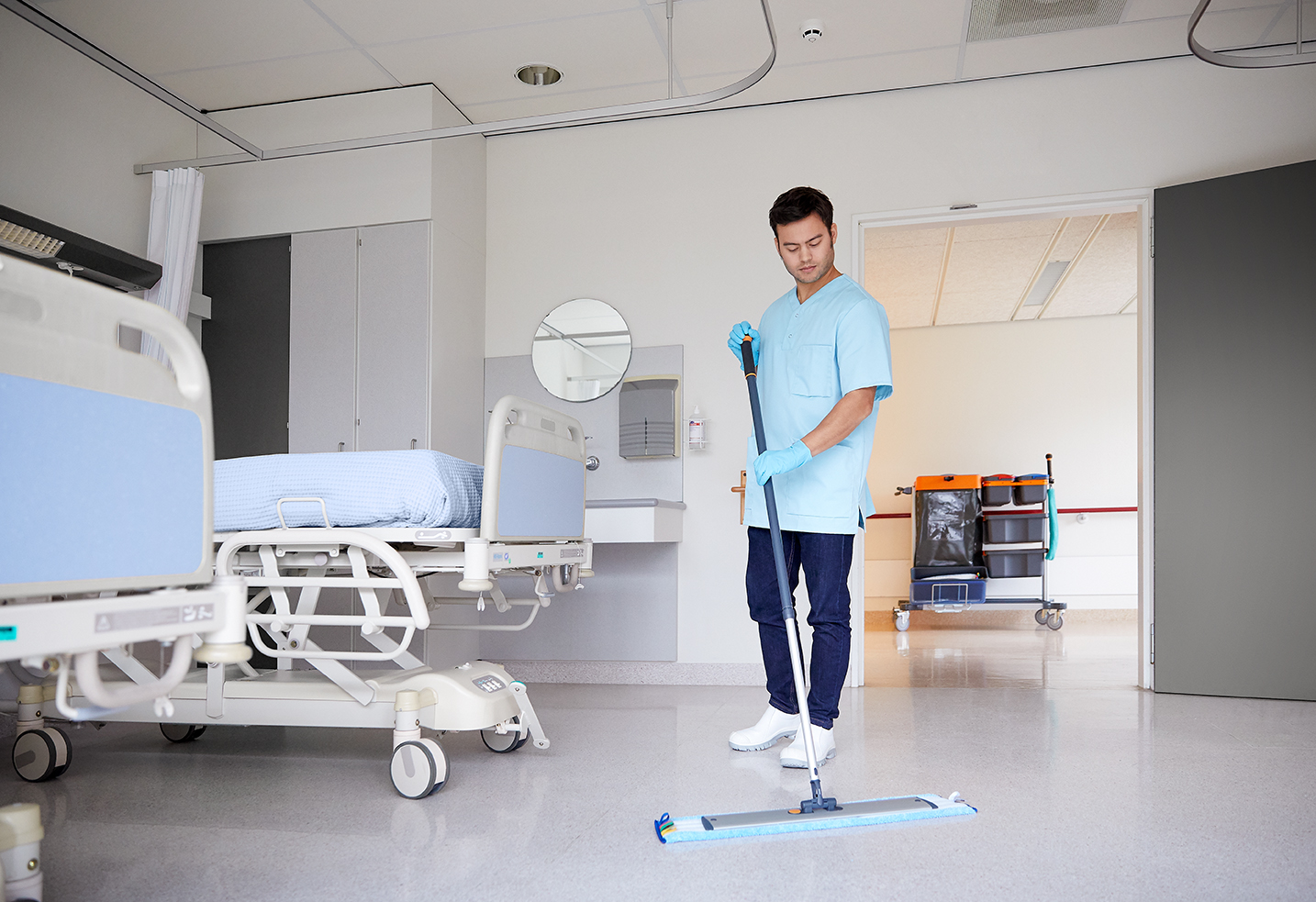Understanding the Role of a Hospital Cleaner
1. Primary Responsibilities
Hospital cleaners are tasked with keeping medical facilities sterile and organized. Their duties go beyond standard janitorial work due to the critical nature of healthcare settings.
Key Tasks Include:
-
Disinfection: Cleaning patient rooms, surgical areas, and common spaces to prevent infections.
-
Waste Management: Proper disposal of biohazard and medical waste.
-
Stocking Supplies: Ensuring cleaning materials and sanitizers are adequately available.
-
Emergency Cleanups: Addressing spills or accidents promptly.
2. Skills and Traits Required
Working as a hospital cleaner requires specific skills and personal attributes:
-
Attention to Detail: Ensuring every corner is cleaned thoroughly.
-
Physical Stamina: Ability to stand, bend, and lift for extended periods.
-
Knowledge of Cleaning Protocols: Familiarity with hospital-grade disinfectants and procedures.
-
Empathy and Discretion: Sensitivity when working in patient areas.
Types of Hospital Cleaner Jobs
1. Flexible Hour Roles
Many hospital cleaner jobs offer flexible hours, allowing workers to choose shifts that suit their schedules.
Benefits:
-
Ideal for students or those with family responsibilities.
-
Options for day, evening, or night shifts.
2. Shift-Based Opportunities
Hospitals operate 24/7, and cleaners are required across various shifts.
Common Shifts:
-
Morning Shift (6 AM – 2 PM)
-
Evening Shift (2 PM – 10 PM)
-
Overnight Shift (10 PM – 6 AM)
3. Jobs With Accommodation
Some hospitals provide accommodation for cleaners, especially in rural or high-demand areas.
Advantages:
-
Reduced commuting time.
-
Convenient for those relocating for work.
4. Jobs With Benefits
Hospital cleaner roles often include additional perks, such as:
-
Basic Insurance: Health and dental coverage.
-
Paid Vacation: Time off to recharge.
-
Retirement Plans: Contributions to 401(k) or similar accounts.
How to Become a Hospital Cleaner
1. Meet Basic Requirements
-
Education: A high school diploma or equivalent is typically sufficient.
-
Work Authorization: Proof of eligibility to work in the U.S.
2. Gain Relevant Experience
While prior experience is not always necessary, working in cleaning or janitorial roles can be advantageous.
3. Apply for Jobs
Search for openings online using terms like Hospital Cleaner Jobs Near Me or through hospital websites.
4. Complete Training
Most hospitals provide on-the-job training covering:
-
Use of hospital-grade disinfectants.
-
Proper waste disposal methods.
-
Infection control protocols.
Competitive Analysis: Hospital Cleaner Jobs vs. Other Cleaning Roles
1. Comparing Job Duties
|
Aspect
|
Hospital Cleaner
|
Office Cleaner
|
Residential Cleaner
|
|
Environment
|
Medical facilities
|
Office buildings
|
Private homes
|
|
Disinfection Standards
|
High
|
Moderate
|
Low
|
|
Specialized Training
|
Required
|
Not typically required
|
Not required
|
2. Comparing Benefits
|
Aspect
|
Hospital Cleaner
|
Office Cleaner
|
Residential Cleaner
|
|
Insurance
|
Often included
|
Rarely included
|
Not included
|
|
Paid Vacation
|
Common
|
Rarely offered
|
Not offered
|
|
Work Hours
|
Shift-based
|
9-to-5
|
Flexible
|
Benefits of Working as a Hospital Cleaner
1. Job Stability
Healthcare is an essential industry, and the demand for hospital cleaners remains consistently high.
2. Competitive Pay and Benefits
Many hospitals offer attractive compensation packages, including insurance, paid leave, and retirement plans.
3. A Sense of Purpose
Hospital cleaners contribute directly to patient safety and public health, making their work highly impactful.
4. Career Advancement Opportunities
With experience, hospital cleaners can move into supervisory roles or specialize in areas like infection control.
Challenges Hospital Cleaners Face
1. Physically Demanding Work
The job requires stamina and resilience due to long hours and repetitive tasks.
2. Exposure to Biohazards
Handling medical waste and cleaning contaminated areas can pose risks, though proper training minimizes these dangers.
3. Emotional Toll
Working in healthcare settings may involve witnessing distressing situations, requiring emotional strength and professionalism.
Frequently Asked Questions
1. What qualifications do I need to become a hospital cleaner?
A high school diploma or equivalent is usually sufficient, though some hospitals may require prior cleaning experience.
2. Are hospital cleaner jobs physically demanding?
Yes, the role involves tasks like lifting, bending, and standing for long periods, so physical fitness is important.
3. Do hospital cleaners receive benefits?
Many hospital cleaner jobs include benefits like health insurance, paid vacation, and retirement plans.
4. Can I work flexible hours as a hospital cleaner?
Yes, hospitals offer various shifts, including morning, evening, and night options, to accommodate different schedules.
5. Is previous cleaning experience required?
Not always, as most hospitals provide training. However, prior experience in janitorial roles can be an advantage.
Trends in Hospital Cleaner Jobs
1. Increased Demand Post-Pandemic
The COVID-19 pandemic highlighted the importance of hygiene, leading to higher demand for hospital cleaners.
2. Adoption of Technology
Hospitals are increasingly using automated cleaning tools, requiring cleaners to adapt to new technologies.
3. Focus on Employee Well-being
Many hospitals are improving benefits and support systems for cleaners to reduce burnout and improve job satisfaction.
Hospital cleaners are unsung heroes in the healthcare system, ensuring the safety and hygiene of medical facilities. This vital role offers job stability, meaningful work, and opportunities for personal and professional growth. Whether you're seeking flexible hours, competitive benefits, or the chance to make a difference, a hospital cleaner job can be a rewarding career choice.

